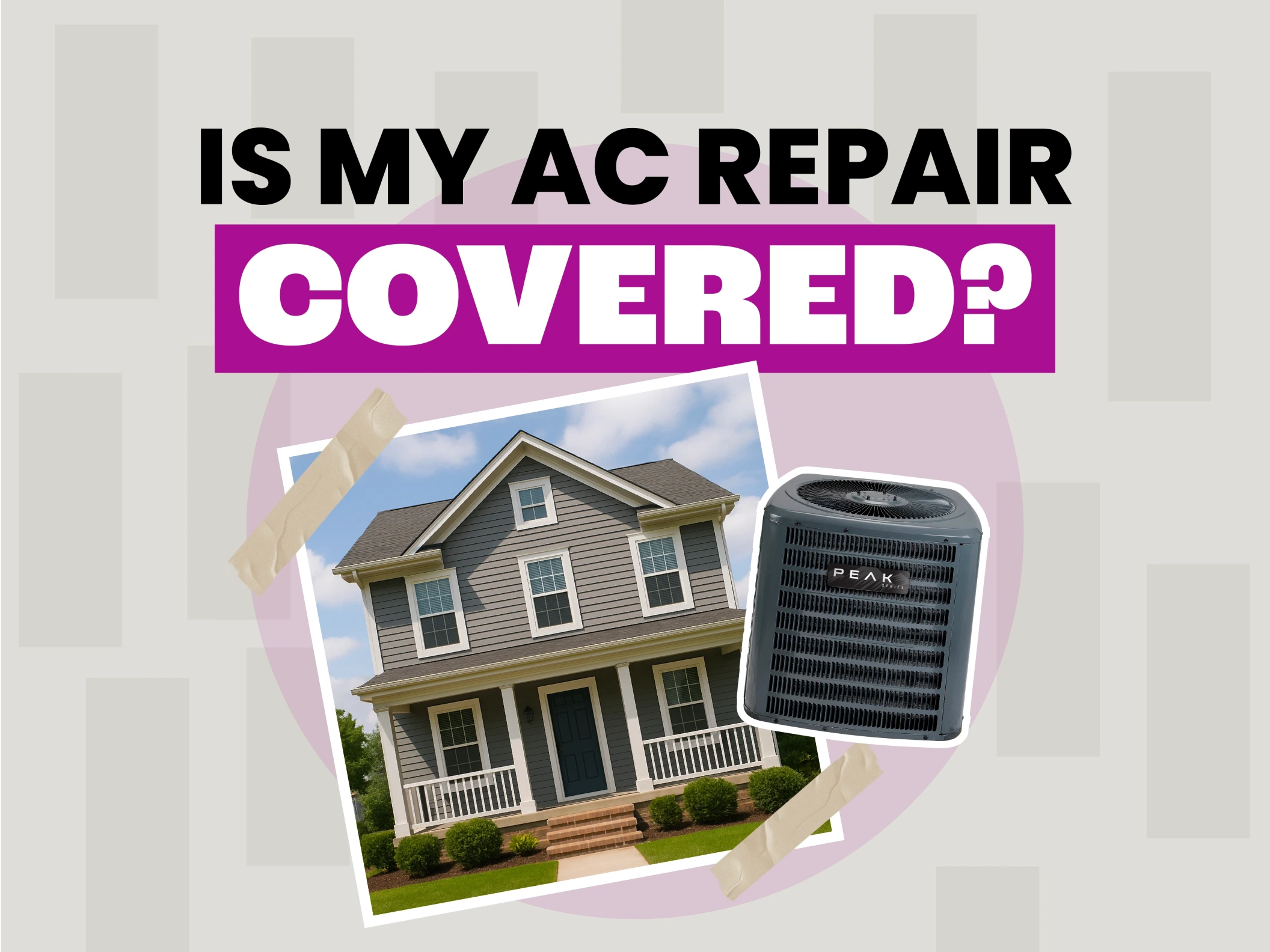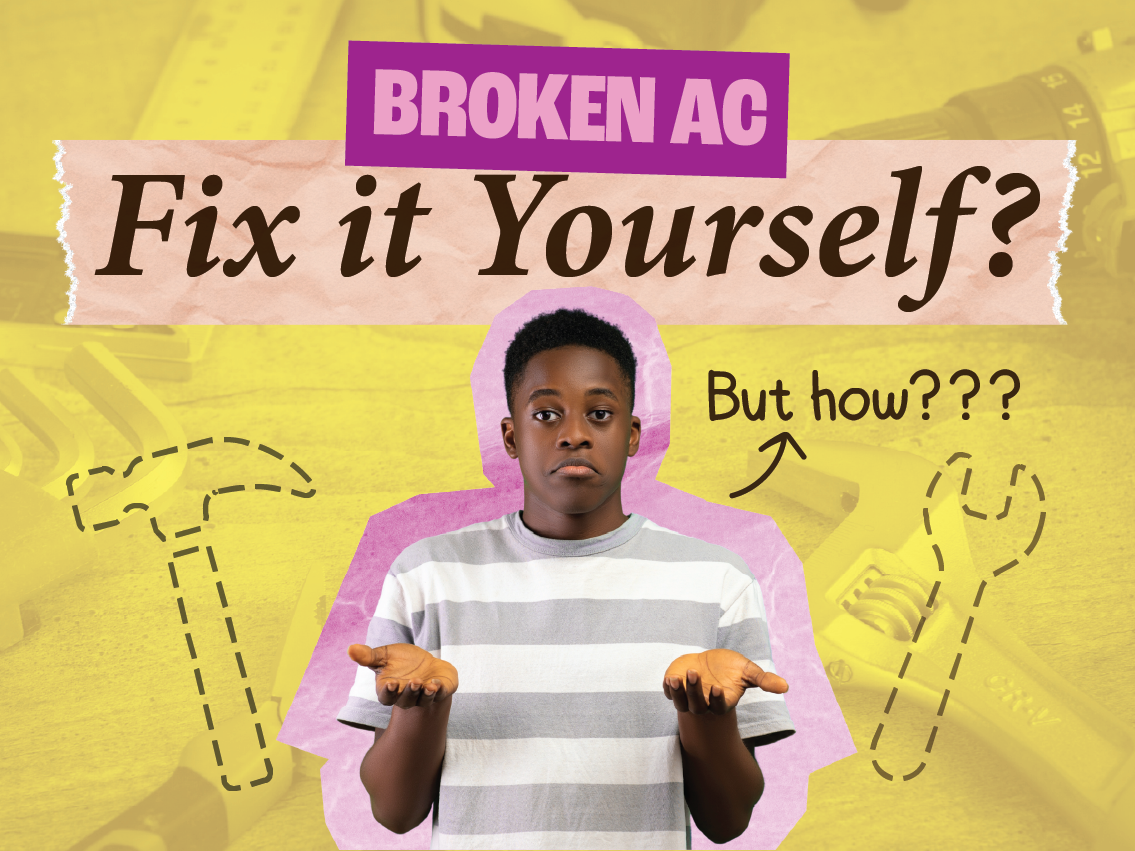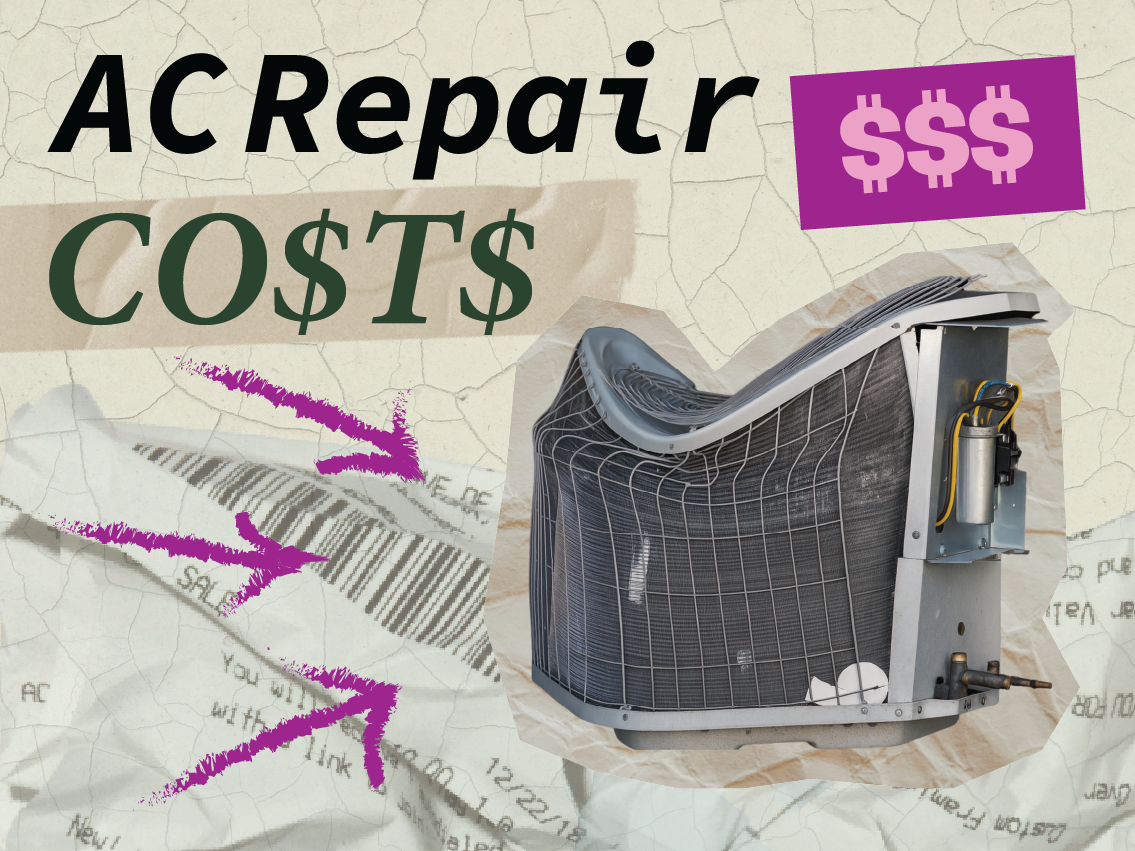Have you ever turned on your air conditioner during the summer, only to find out it is struggling to keep up? This is a common issue, very often, this is not because your AC is a faulty unit, but because of overlooked maintenance. Your AC is not like your refrigerator, a plug- and-play device. It is a complex system that requires care and maintenance in order for it to perform at its best.In the next few minutes, we’ll discover the tips on how regular AC maintenance & tune-ups not only enhance your AC & home comfort but also reduce your overall energy bills up to 15%, improve your air quality, avoid costly repairs up to $2,000, and potentially extend the lifespan of your AC unit to 30 years.
Best Tips to Maintaining Your Air Conditioner
You must first understand what air conditioner’s BTUs (British Thermal Units) are, this is the measure that dictates your unit’s ability to cool your home efficiently. Without proper maintenance, the performance of your Air Conditioner will decline, which will lead to uncomfortable indoor temperatures, inconsistent cooling and high energy bills, and potential system breakdowns. Consistent AC maintenance & tune-ups prevents these issues by keeping filters clean, coils clean, and ensuring all of your AC components function the best it can.
Inspect and Change Your AC Air Filters
Clean AC filters will ensure that your AC’s performance and your home’s air quality is at peak potential.

MERV Ratings
Understanding MERV ratings, this measures a filter’s effectiveness. Choosing a filter that provides proper filtration will ensure your AC is not going to be overworked, and will ensure you have a better air quality.
Changing AC Air Filter is A Must
- Regular Air Filter Changes: Changing or cleaning AC filters monthly during peak times like summer will improve energy efficiency by up to 15%.
- Adapting to Your Environment: Homes with pets means LOTS of shedding, your AC filter will be clogged up because of that. That may mean frequent changes.
- Right MERV Rating: Choosing a filter that provides good balance of air quality & system efficiency.
Here’s How to Change Your AC Filters
- Switch Off AC: Always turn off your AC unit before you begin any maintenance work.
- Find and Remove Air Filter: Open the access panel to locate and remove the air filter.
- Clean or Replace Air Filter:
– For reusable filters, wash them under a tap or hose, let it dry, then reinsert it.
– For disposable filters, replace the old air filter with a new one of the same MERV rating and size.
Check AC Coils
Keeping AC Coils Clean
The AC’s efficiency relies heavily on the cleanliness of its evaporator and condenser coils. With time, these coils can collect dirt, therefore, affecting you unit’s ability to cool your home effectively. A clean filter will help with that, but the coils themselves will require regular attention to prevent dirt from building up, which will restrict airflow impact efficiency.
Yearly Coil Check-ups
- Evaporator Coil Maintenance: Even if you have a newly replaced clean filter, the evaporator coil will gather dirt, and that means reduced airflow and heat absorption.
- Condenser Coil Cleaning: When exposed to outdoor conditions, the condenser coil is prone to collecting debris, especially if located near foliage or in a dusty environment. Keeping this coil clean is crucial for AC to run smoothly.
Debris and Dirt In AC
Make sure the area around your outdoor AC condenser unit is clear from leaves, grass clippings, and other debris. Regularly cleaning this area and trimming back foliage can significantly reduce the dirt accumulation on the AC coils. Typically, scheduling an AC Tune-Up should provide these basic services.
Clear AC Condensate Drains
Drain channels matter because when these drains are clogged, it can increase humidity inside your home and may promote mold growth and potentially cause water damage to your AC.
How to Maintain AC Condensate Drain Lines
- Locate the Drain Channel: Find the condensate drain line near your Air Conditioner Unit. It’s usually a PPC pipe.
- Clearing the Clogs: Use a stiff wire or something like a coat hanger to gently remove blockages in the drain pipe. Insert into the drain channel and carefully remove & dislodge debris.
Check AC’s Compressor and Condenser
The Compressor and Condenser are critical components for your AC’s efficient cooling capabilities.
- Location Matters: You should have your AC’s compressor and condenser in shaded areas, ideally on the north or east side, it is better to avoid direct sunlight and boost efficiency by 10%. A sun shield can help with this.
- Clean Space for AC is Key : Make sure to have at least 24 inches of space clear around an AC unit. Remove any debris, leaves, or overhanging branches to ensure optimal airflow for performance.
Cover Your AC During Winter
- Room AC Units: For window units, it’s advisable to store your AC Window Units away during the winter months. If you can’t remove it, it is advisable to cover it with an insulating wrap.
- Central AC Systems : the outdoor condenser unit should be covered with a breathable, waterproof cover. This will protect your AC against heavy snow, ice, and debris.
Hiring a HVAC Professional for AC Tune-Ups
If you’re wondering what a maintenance and tune-up appointment with a HVAC technician includes, here is a list of a comprehensive AC service:
- Check Refrigerant Levels: Verify that your AC’s refrigerant level is optimal and look out for looks.
- System Inspection: Examine your entire HVAC system, including the ductwork for any leaks, airflow measurement, and the sequence of electrical control to prevent any simultaneous operation of heating and cooling.
- AC Coil Cleaning: The evaporator and condensor coils should be cleaned to maintain AC efficiency and performance.
- Thermostat Accuracy: Make sure that the thermostat is functioning correctly and accurately.
- Electrical Connections Inspection: Make sure all electrical connections are complete for safety, tighten them if you need to, and apply non-conductive coating if needed.
- AC Motor and Belt Inspection: Check Oil motors, check belts for wear and tightness, and replace if needed.
- AC Condensate Drain Check: Ensure condensate drain is cleared to prevent water damage and humidity issues.
- AC System Controls Check: Verify the AC’s start cycle, operation, and shut-off sequence.
- Air Filter Replacement: Ensure your AC air filters are clean or replaced to maintain air quality and performance.
- Safety Devices Testing: You must test all safety devices to ensure they are operational and protecting the system, such as the AC capacitor.
FAQ On Air Conditioner Sizing
What are the most common AC problems?
The most common AC repairs & problems that homeowners encounter include:
- Refrigerant Leaks: Low refrigerant levels due to leaks can cause your AC to underperform or freeze up. This requires professional repair to locate the leaks, fix them, and refill the refrigerant to the manufacturer’s specifications.
- Dirty Filters: Clogged or dirty air filters will restrict airflow, reducing your system’s efficiency and ability to effectively cool your home.
- Thermostat Issues: Incorrect thermostat settings or malfunctioning thermostats can potentially lead to cooling issues. Simply replacing batteries or recalibrating the thermostat can resolve these problems.
- Drainage Problems: The condensate drain can become clogged over time, this will potentially lead to water damage or increased humidity levels inside your home.
- Dirty or Blocked Coils: Dirt accumulated on the AC condenser or evaporator coils can impede heat absorption, lowering the efficiency and cooling power of your AC.
- AC Fan Problems: A Faulty fan on your outdoor unit can lead to poor airflow and compressor overheating, this will affect the system’s ability to cool your home.
- Electrical Control Failure: Frequent on and off cycles can wear out the compressor and fan controls, negatively impact the AC’s performance.
- Sensor Problems: The sensor may be knocked out of position, the AC might behave erratically or cycle constantly.
- Unusual Noises or Odors: When you smell odors or hear strange sounds coming from your AC unit can indicate a variety of issues, from belt problems to mold in the ductwork.
- Capacitor Issues: Capacitors are crucial for starting the AC motor, just like your car’s spark plugs. If they fail, your AC might struggle to start or could shut off unexpectedly
Regular maintenance and tune-ups can help prevent these common issues, ensuring your AC runs smoothly throughout the cooling season.
What are the signs that my AC needs a tune-up?
Some symptoms include increased energy bills, uneven cooling, strange noises from AC, when the system struggles to maintain set temperatures are common indicators.
How much does a typical AC tune-up cost?
The cost of an AC tune-up can vary depending on your location. On average, homeowners can expect to pay between $75 and $200 for a professional AC maintenance session depending how comprehensive the tune-up is.
How often do I have to schedule an AC tune-up?
Typically, scheduling an AC Maintenance or Tune-Up once per year is a great rule of thumb. This will ensure, that you will extend your AC’s lifespan to almost 30 years compared to the average 15-20 years lifespan. Having regular AC maintenance will ensure you have up to 15% savings in energy bills, and prevent 85% of potential future AC repairs.
Who pays for AC maintenance - tenants or landlords?
The responsibility for paying and AC Maintenance or Repair can very, this depends on the lease agreement, state laws, and the nature of maintenance needed:
- Landlords: will typically cover maintenance and repairs for AC units to ensure the property is habitable, especially if the AC unit is a provided amenity.
- Tenants: might be responsible for minor maintenance tasks (like changing filters) and damages due to negligence or misuse, as outlined in the lease.
- The lease agreement: should specify responsibilities for HVAC maintenance and repairs. It’s important for both parties to review and understand these terms before signing.
- Local State laws: this can influence HVAC maintenance or repair responsibilities, with some jurisdictions mandating landlord responsibility for essential systems like AC, especially in regions where it’s crucial for habitability.






















